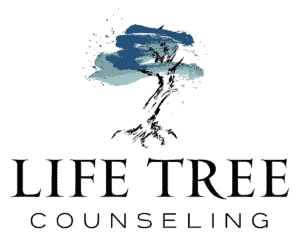Could Play Therapy be Right for my Child?
Hi! My name is LaShondra Manning and I am one of the play therapists here at Life Tree Counseling Center. If you have heard of play therapy, you might be curious about using it as a tool to help your child. I’m here today to help inform you about play therapy and its benefits, which are explained in greater detail below.
Who is play therapy for? Play therapy is for children ages 3-9 who are exhibiting any type of difficulties, adjustments, or traumas. Simply put, play therapy is equivalent to talk therapy with adults, using a familiar age-specific coping and communication mechanism to connect with a child patient on a real and open forum.
What is play therapy? Play therapy is an interpersonal, dynamic relationship between a child and a therapist trained in play therapy procedures who provides selected play materials and facilitates the development of a safe relationship for the child to fully express self (feelings, thoughts, experiences, and behaviors). Play therapy uses toys, games, and role play exercises that are already familiar with the child to establish trust and communication.
Why play therapy and not talk therapy? Play is the 3-9 year old child’s natural medium of communication. Play therapy helps a child develop responsibility, decision-making skills, and self-control in a safe and non-threatening manner. What may be hard for a child to say or write can be manifested in his or her play. The therapist’s job is to be present and help your child master and conquer their issues through this medium.
How does play therapy work? The most important facet to play therapy is building the child-therapist relationship. The therapist gives your child undivided attention, conveys empathy and accepts him/her where he/she would like to be, emotionally. When children can communicate or play out how they feel to someone who understands, they feel better because feelings have been released.
What kind of toys are in the play room? Toys are purposefully selected by the play therapist, and may include dolls, art, puppets, and other expressive toys to help children convey what they think and how they feel. The therapist may prompt the child with certain toys, depending on current issues, or they may let them choose for themselves.
What should I tell my child before the first session: Explain to your child that he/she will be coming to meet with a new friend in a special playroom every or every-other week. In the playroom, there will be lots of toys to play with. This will turn a “doctor’s visit” into something fun for them, removing fear and concern.
Some helpful tips that will help your child get the most out of play therapy:
Before the session, refrain from encouraging the child to talk about specific problems. In the play room, the child chooses when to speak or not to speak. If the child chooses to talk, he or she chooses the topic.
- After the session, also refrain from asking questions such as, “Was that fun?,” “What did you do?,” or “What did you talk about?” Sometimes, the sessions are not fun because the child is expressing difficult emotions. If the child brings up what he or she did in the playroom, that’s fine, but it isn’t helpful to ask questions about this time. The best response after a session is to simply greet your child warmly and let them talk about it naturally, if they want to.
- As your child’s therapist, I will keep you informed about your their progress. For my own clients, I make it a point to talk briefly after every 3rd session. If I have a major concern about your child, we will talk more often than this, of course.
- If you need to speak to me about your child, please be prepared to talk at the beginning of our time, before I meet with your child. I cannot talk to you after the session – this could convey the damaging impression to your child that I am “reporting” their play.
I look forward to serving both you and your child with play therapy. Let the playing begin!
For more information about play therapy or if you would like to schedule an appointment call us at (972) 234-6634
Tags:
